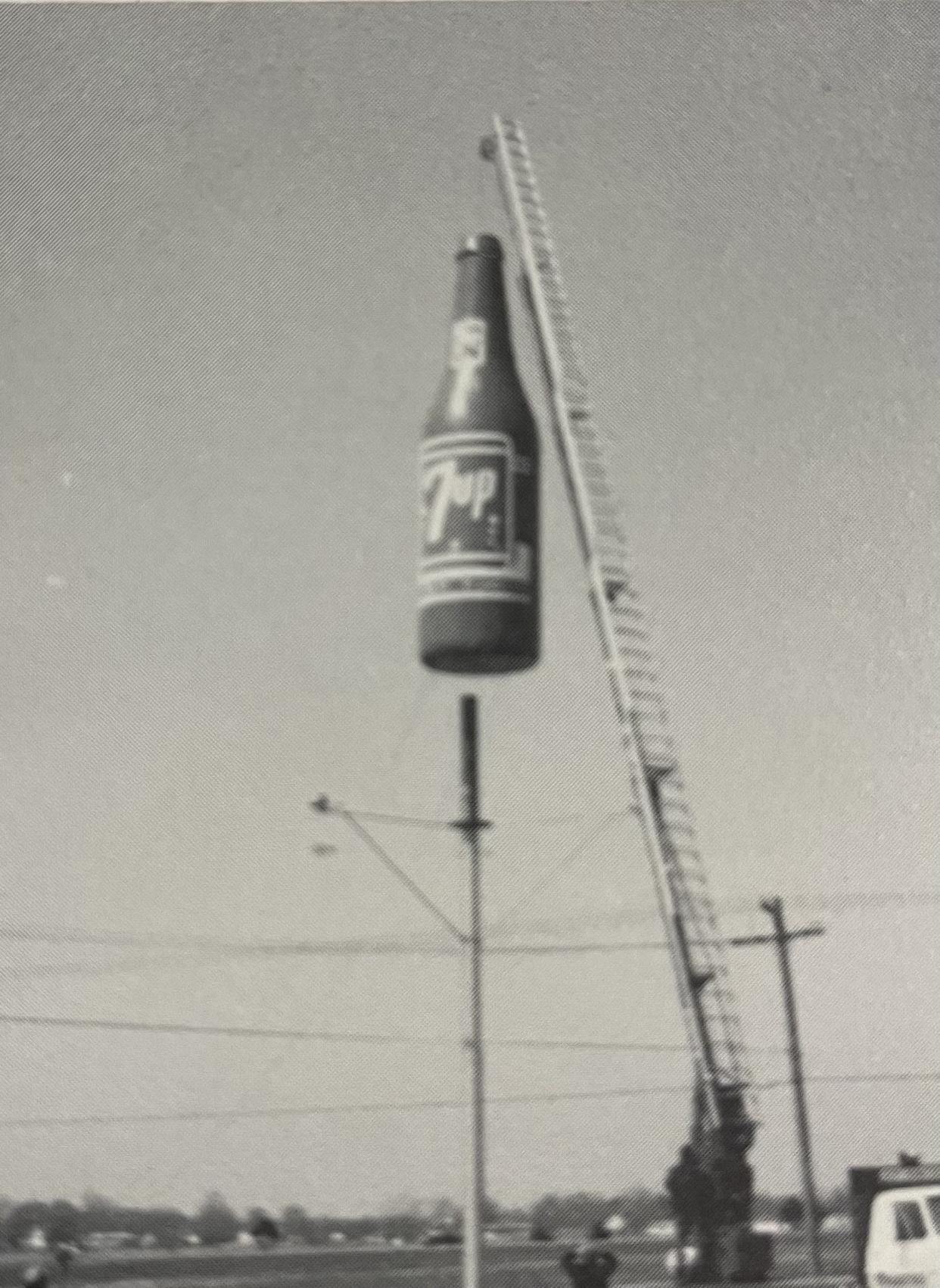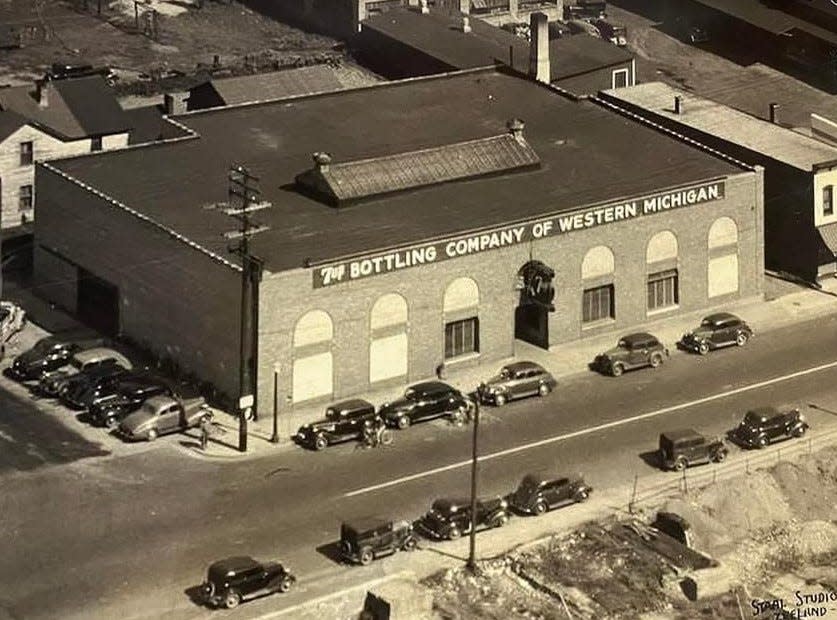Steve VanderVeen: 7-Up continues to grow in Holland

James (Jim) Fitch Brooks was a professional manager.
He was born in Portsmouth, Ohio, in 1923 to Phillips and Ruth Fitch Brooks. In 1929, the family moved to Holland, Michigan, where Phillips joined his brother, Ernest, in the insurance business.
However, while in Ohio, Phillips had discovered a small business selling a concoction of lithiated, lemon-lime soda in glass bottles with paper-bib 7-Up labels. In 1934, Phillips likewise became a 7-Up franchisee and launched the 7-Up Bottling Company of Western Michigan.
But he wasn’t blessed with success until 1937. Meanwhile, in grade school, Jim met JoAnne VanderVelde. Later, at E.E. Fell Junior High, Jim defeated JoAnne for class president after recruiting cheerleaders to campaign for him. Then, after completing college, he married her.
More: Steve VanderVeen: Holland's very own 7-Up franchise
First, Jim attended the Culver Military Academy in Culver, Indiana, then the University of Michigan (UM), with the dream of becoming a doctor like his mother's father. He changed his plan, however, when during his freshman year at UM, World War II broke out.
In response, Jim joined the Army Air Corp, where he served as a B29 navigator. It was in 1944, just before Uncle Sam sent him to Japan, that he married JoAnne.

After the war, Jim joined his father and his sister Janet’s husband, Don Winter, at the 7-Up Bottling Company of Western Michigan, then serving customers in 13 counties. In 1953, after succession struggles with Phillips, who wanted to spend winters in Florida and return to run the business the remainder of the year, Jim became president.
By then, 7-Up sales were booming. To meet demand, the company expanded its production facility at 99 River Ave. and added 11 warehouses throughout the state.
Jim was a lifelong learner. For example, he and JoAnne’s cousin, Bob Den Herder, then CEO of First Michigan Bank, joined the American Management Association to learn professional management practices, including strategic planning, which had a significant impact on the business.

As supermarkets displaced corner grocery stores, diet drinks entered the market, and soft drink competition proliferated. The 7-Up Company of Western Michigan introduced customers to a 12-ounce container and Like (a diet lemon lime drink).
With the introduction of vending machines, the company added single choice, then multi-choice machines through a affiliative company, Vendwell, Inc.
To offer consumers more convenience, the 7-Up Company of Western Michigan was the first in the industry to offer twist-off caps, non-returnable packaging/disposable glass, cans, and PET plastic bottles. To scale his business, Jim also joined the Michigan Soft Drink Association, made friendships, and persuaded his new friends to join forces.
Simultaneously, Jim was a founding member of HEDCOR (Holland Economic Development Corporation) which developed an industrial park on the southeast side of Holland. There, the Brooks family broke ground on a new 50,000-square-foot bottling facility in July 1965.
Subscribe: Get unlimited access to our local coverage
With its increased production capacity, the 7-Up Bottling Company of Western Michigan changed its name to Brooks Products and acquired bottling companies throughout Michigan: including the 7-Up Bottling Company of Northern Michigan, the Grand Rapids Bottling Company and the Vernors Bottling Company of Southwest Michigan.
By 1969, Brooks Products' new facility at 777 Brooks Ave. was filling 960 bottles and cans per minute.
In 1970, Brooks Products added another 60,000 square feet to its facility. Then it acquired the Vernors Bottling Company of Hershey, the 7-Up Bottling Company of Bay City, the Vernors Bottling Company of Grand Rapids, the Dr. Pepper Bottling Company of Benton Harbor, and the Coca-Cola Bottling Company of Alpena. It added another 87,000 square feet to its operation.
But in 1976 came disruptions. First, state voters approved a mandatory deposit on soft drink and beer containers, with the goal of reducing litter and saving energy and natural resources. That meant Brooks Products had to rebuild its production lines, including bottle washers and new labeling machines.
Second, the U.S. Federal Trade Commission argued soft drink franchises were illegal because they prevented similar brands from competing against each other. These threats triggered a change in Brooks Products’ strategy, and occurred after Phillips’ grandson, James W. Brooks, had joined the business.
We’ll tell his story next time.
— Steve VanderVeen is a resident of Holland. You may reach him at skvveen@gmail.com. His book, "The Holland Area's First Entrepreneurs," is available at Reader’s World.
This article originally appeared on The Holland Sentinel: Holland History: 7-Up continues to grow in Holland
